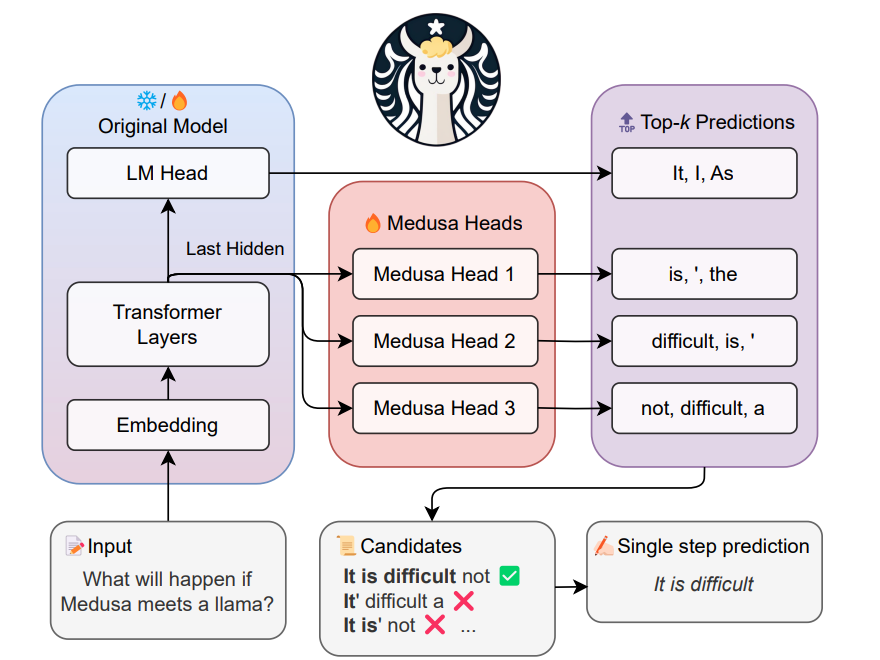ArXiv Dives - Medusa

Abstract
In this paper, they present MEDUSA, an efficient method that augments LLM inference by adding extra decoding heads to predict multiple subsequent tokens in parallel. The inference process in Large Language Models (LLMs) is often limited due to the absence of parallelism in the auto-regressive decoding process, resulting in most operations being restricted by the memory bandwidth of accelerators. Using a tree-based attention mechanism, MEDUSA introduces only minimal overhead in terms of single-step latency while substantially reducing the number of decoding steps required.
Teams: Google Research, Weizmann Institute, Tel-Aviv University,Technion

ArXiv Dives
Every Friday at Oxen.ai we host a paper club called "ArXiv Dives" to make us smarter Oxen 🐂 🧠. We believe diving into the details of research papers is the best way to build fundamental knowledge, spot patterns and keep up with the bleeding edge.
These are the notes from our live session, feel free to follow along with the video for context. If you would like to join live to ask questions or join the discussion we would love to have you! Sign up below 👇

Live Notes
We had a guest presenter Daniel Varoli from Zapata.ai this week, all the notes are in his notion page:

Next Up
To continue the conversation, we would love you to join our Discord! There are a ton of smart engineers, researchers, and practitioners that love diving into the latest in AI.
If you enjoyed this dive, please join us next week live! We always save time for questions at the end, and always enjoy the live discussion where we can clarify and dive deeper as needed.

All the past dives can be found on the blog.

The live sessions are posted on YouTube if you want to watch at your own leisure.
Best & Moo,
~ The herd at Oxen.ai
Who is Oxen.ai?
Oxen.ai is an open source project aimed at solving some of the challenges with iterating on and curating machine learning datasets. At its core Oxen is a lightning fast data version control tool optimized for large unstructured datasets. We are currently working on collaboration workflows to enable the high quality, curated public and private data repositories to advance the field of AI, while keeping all the data accessible and auditable.
If you would like to learn more, star us on GitHub or head to Oxen.ai and create an account.






